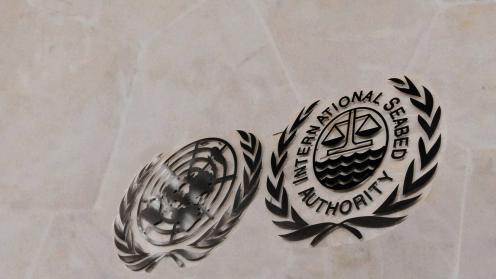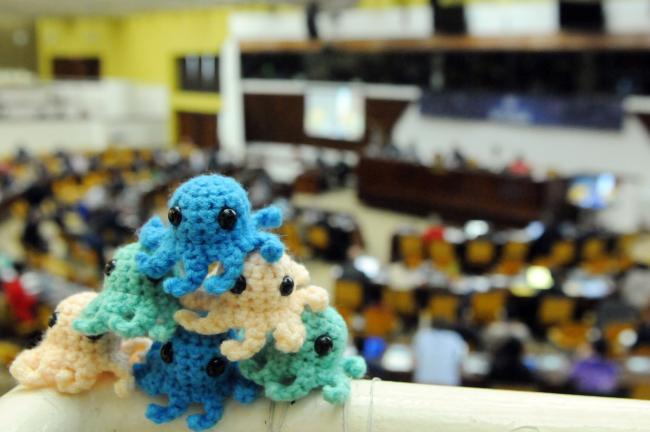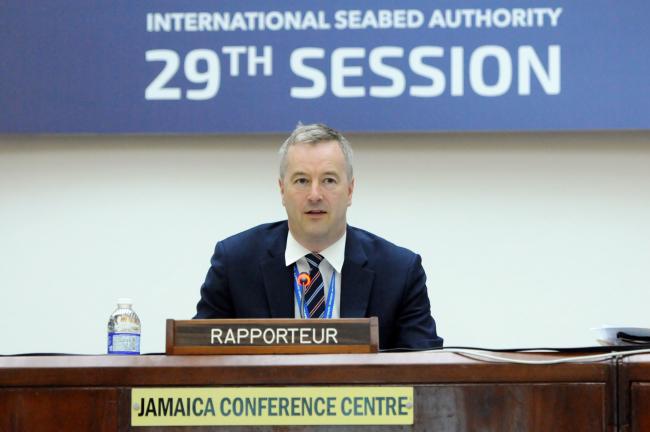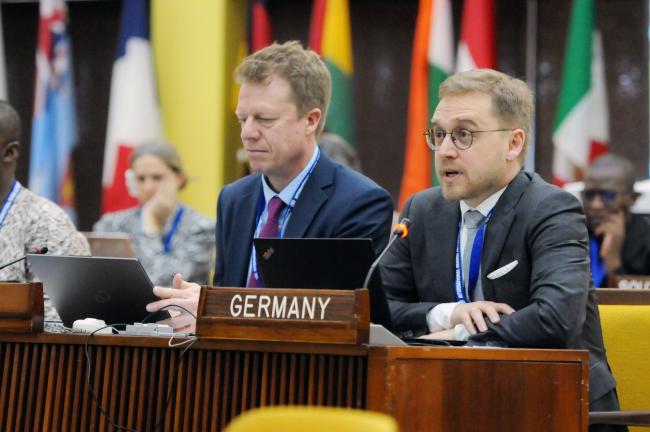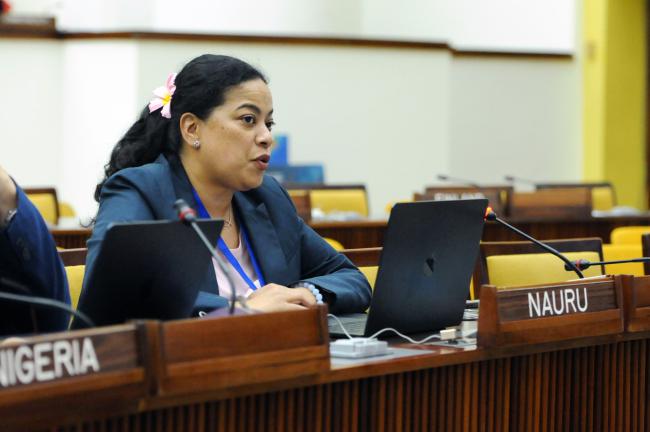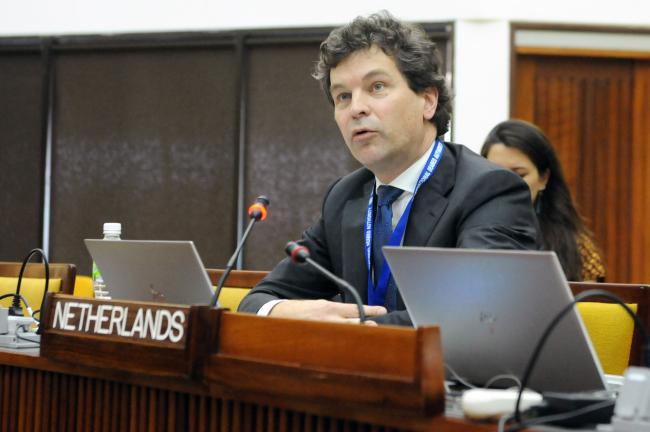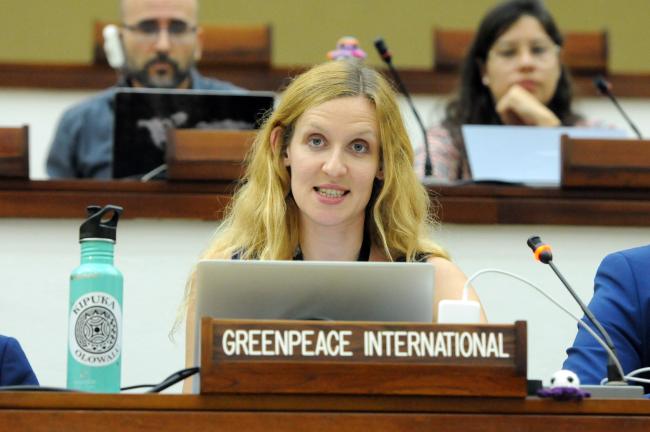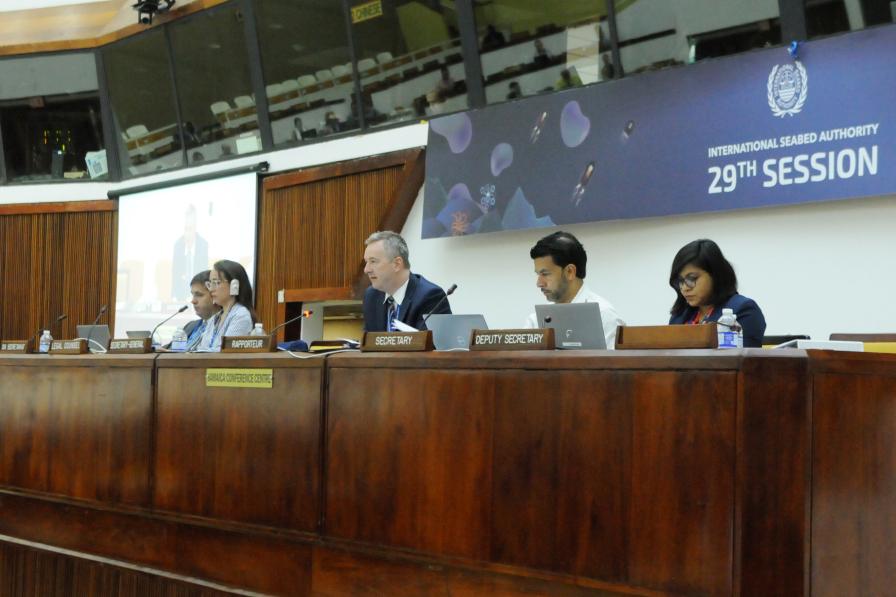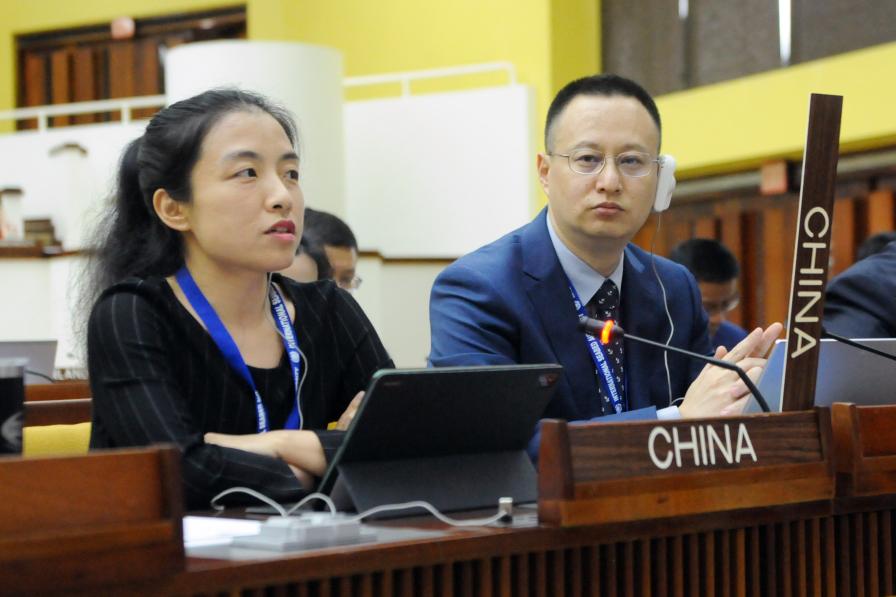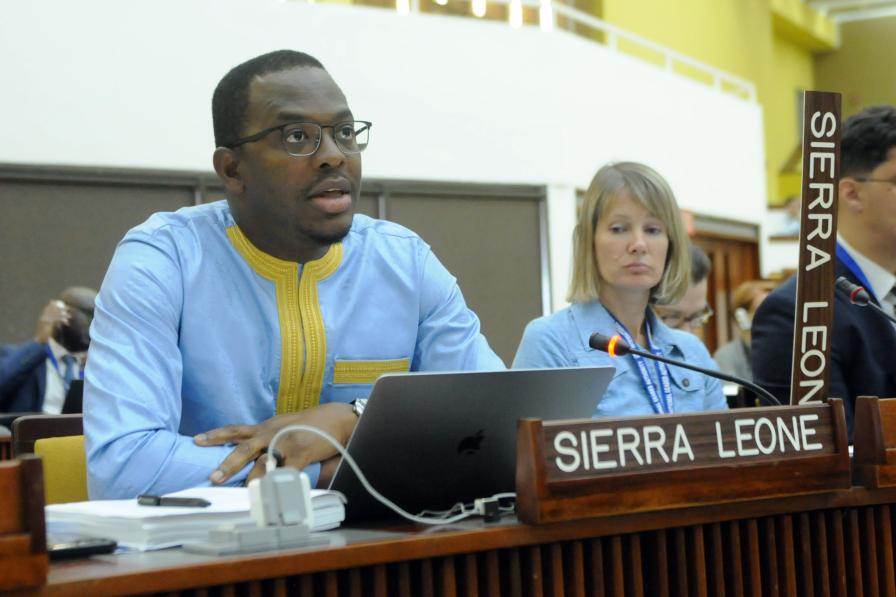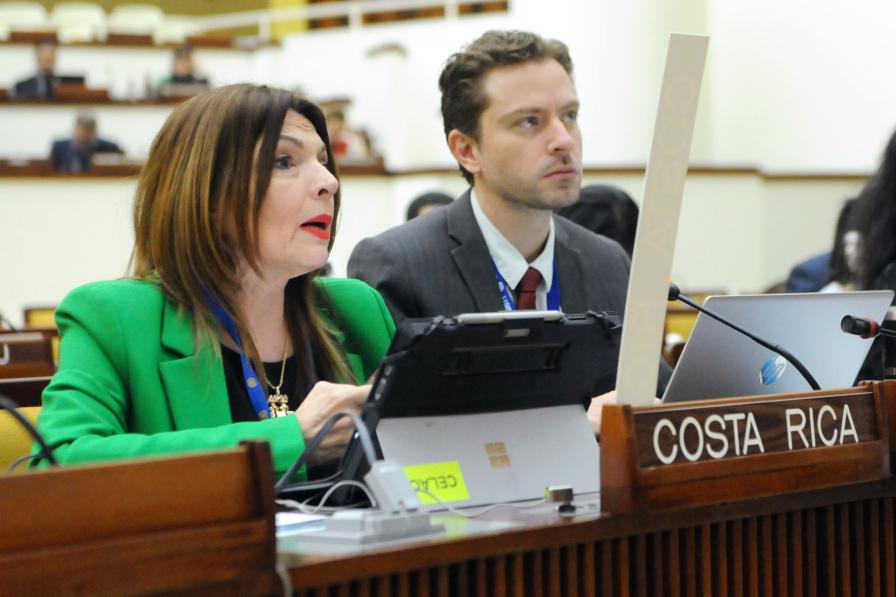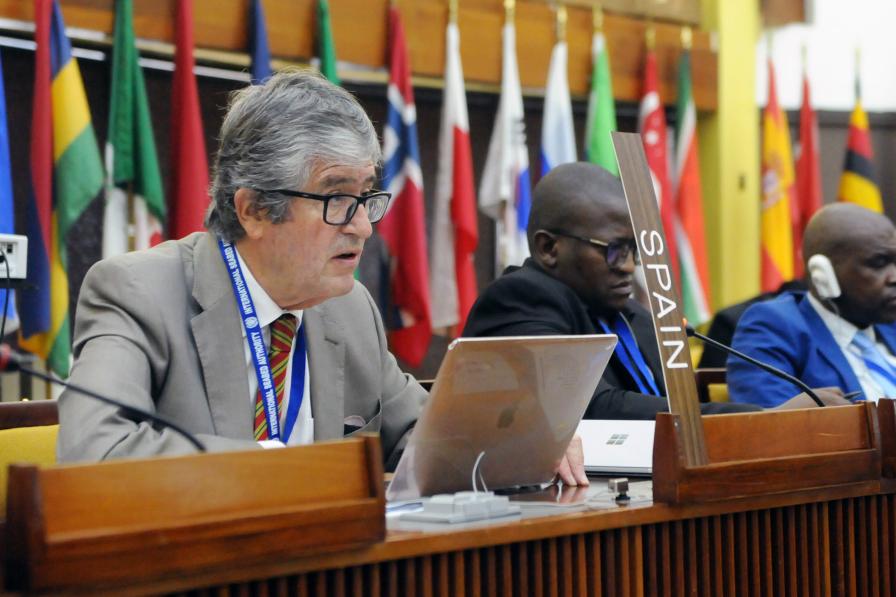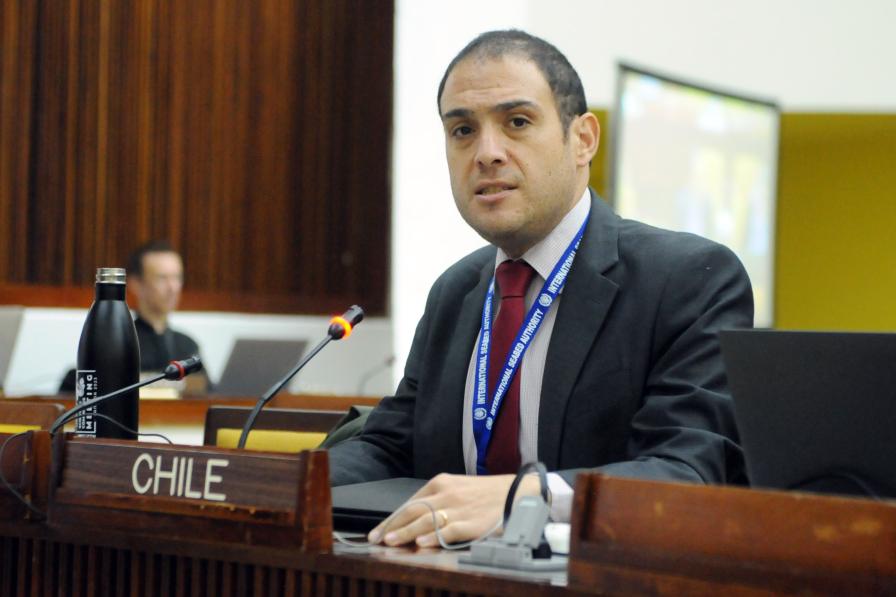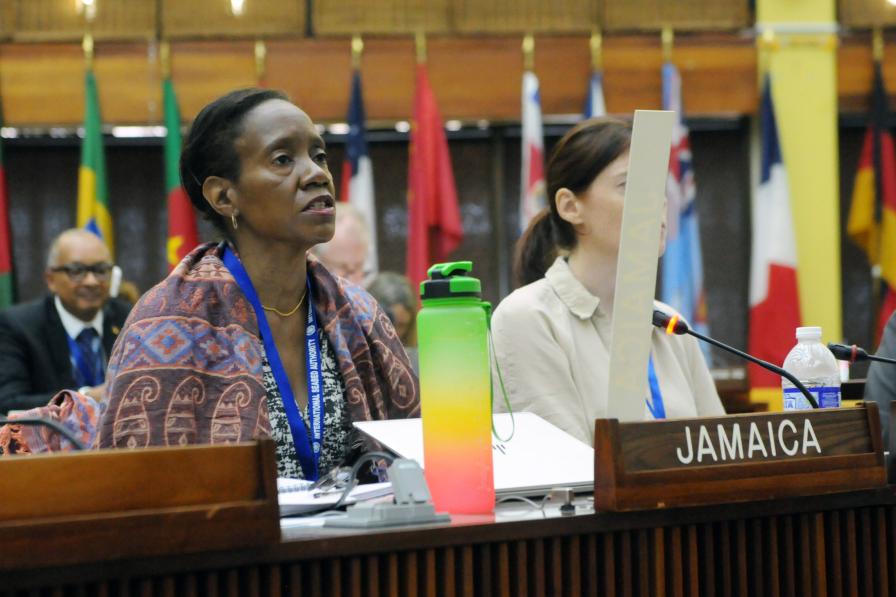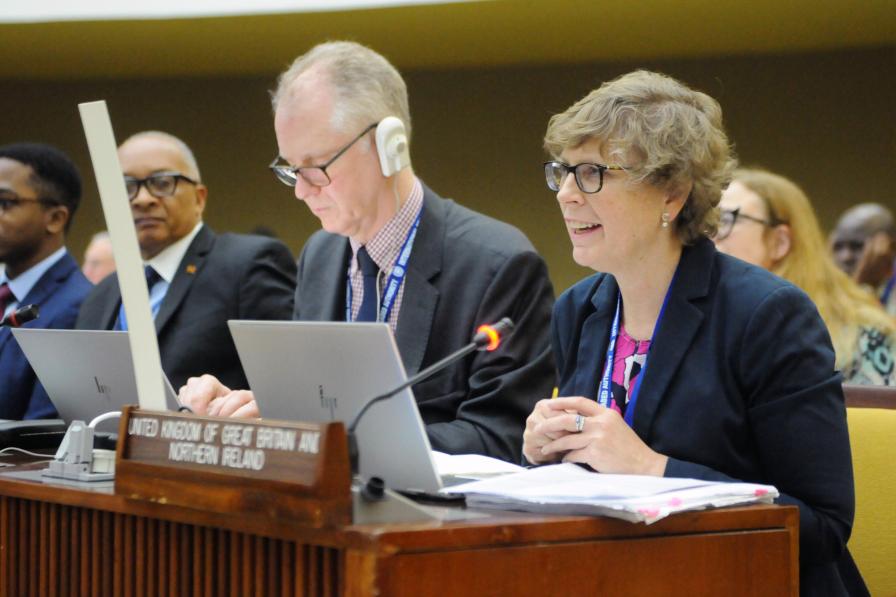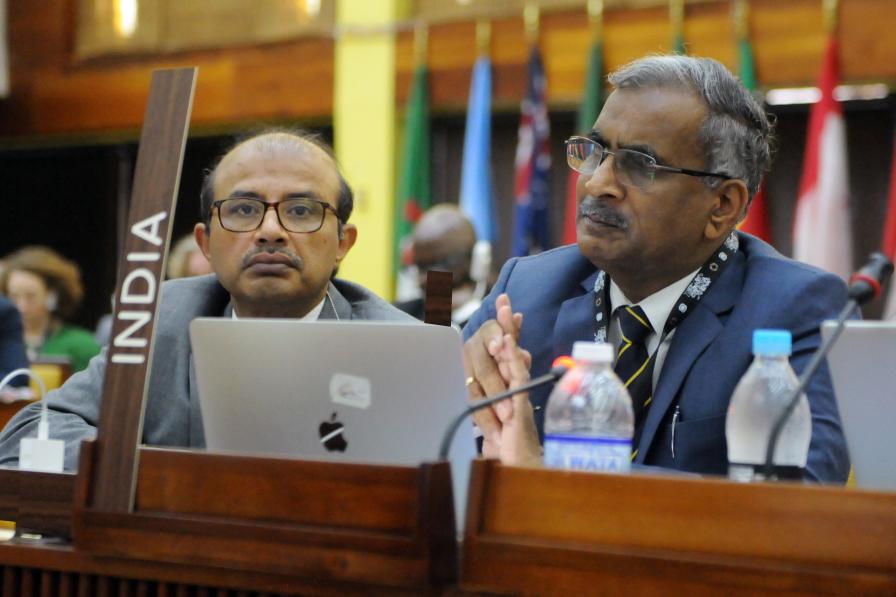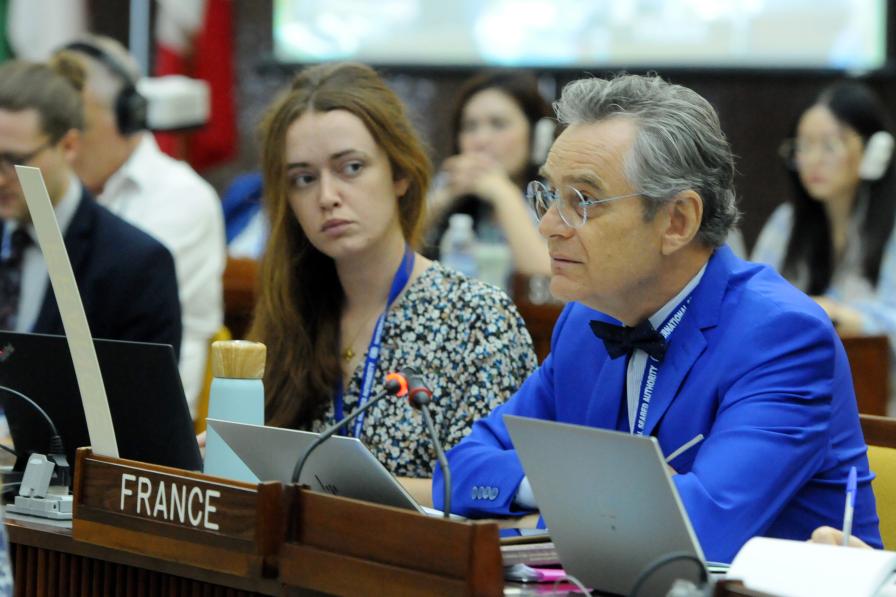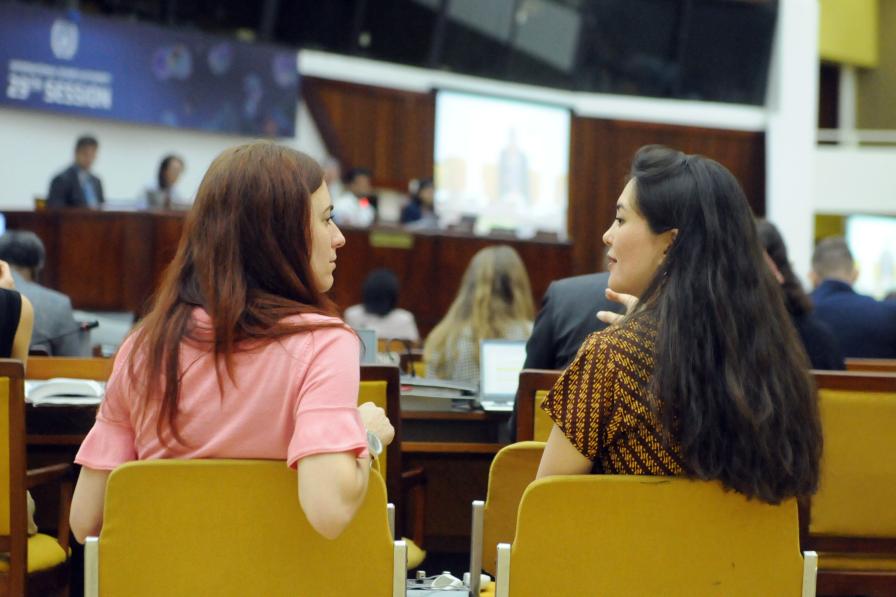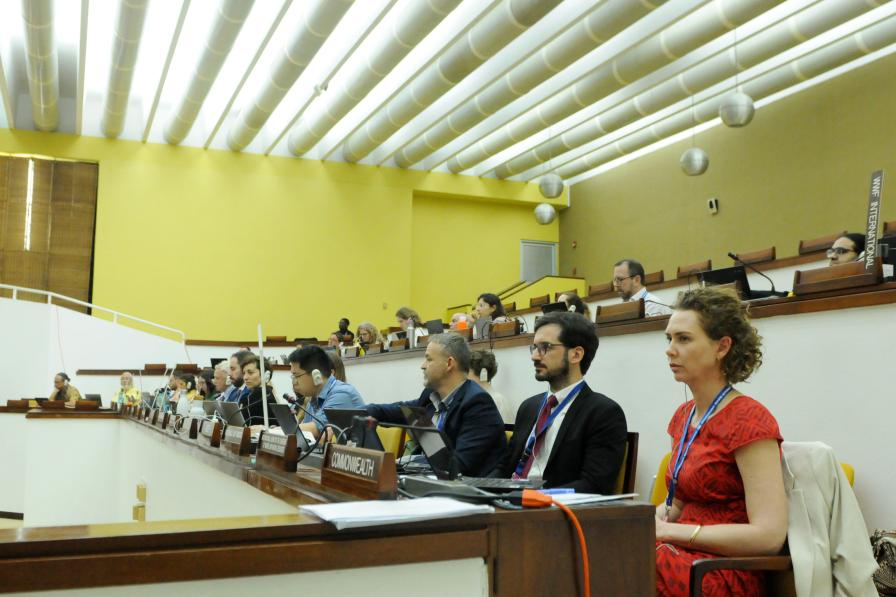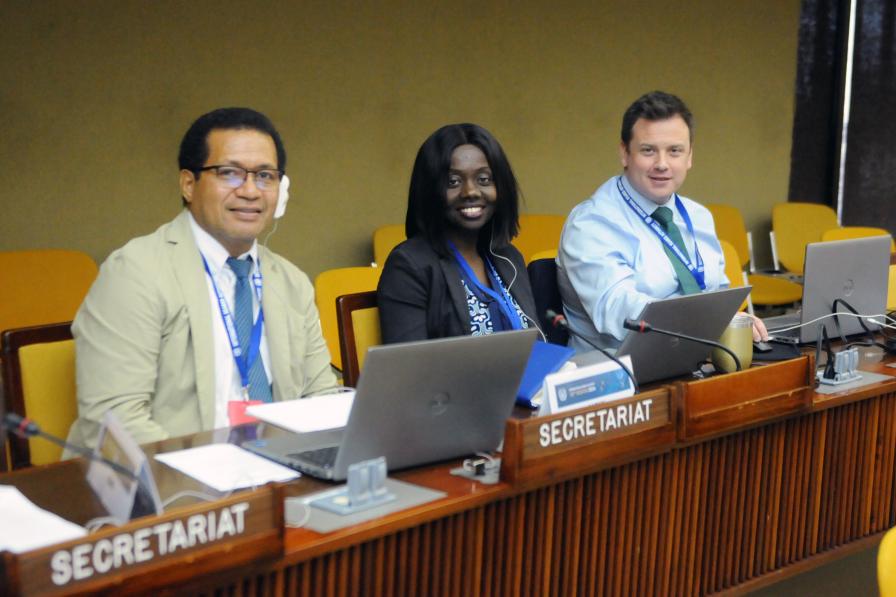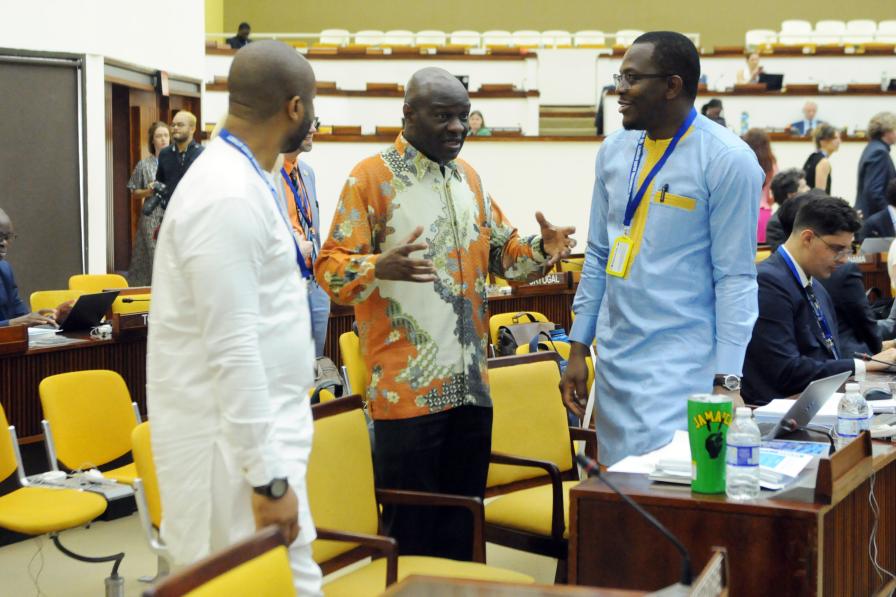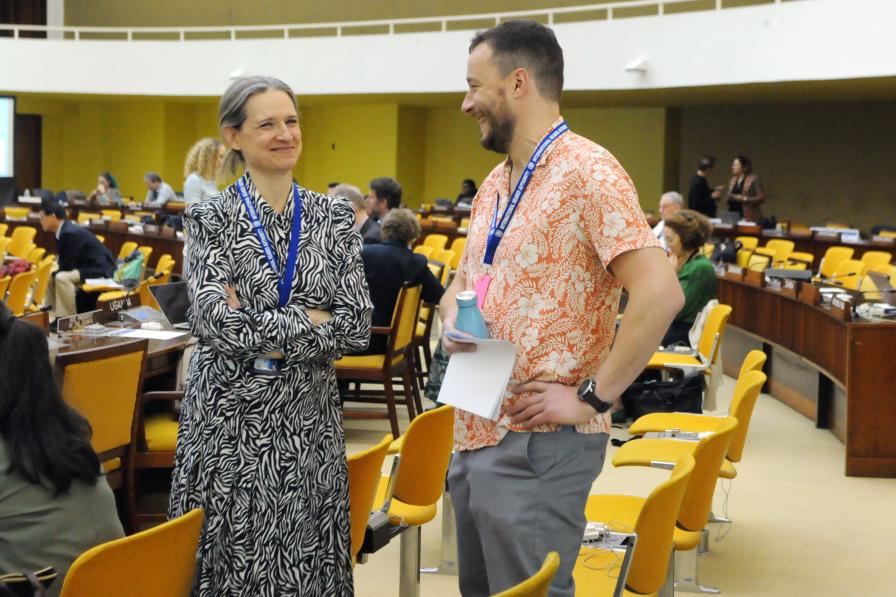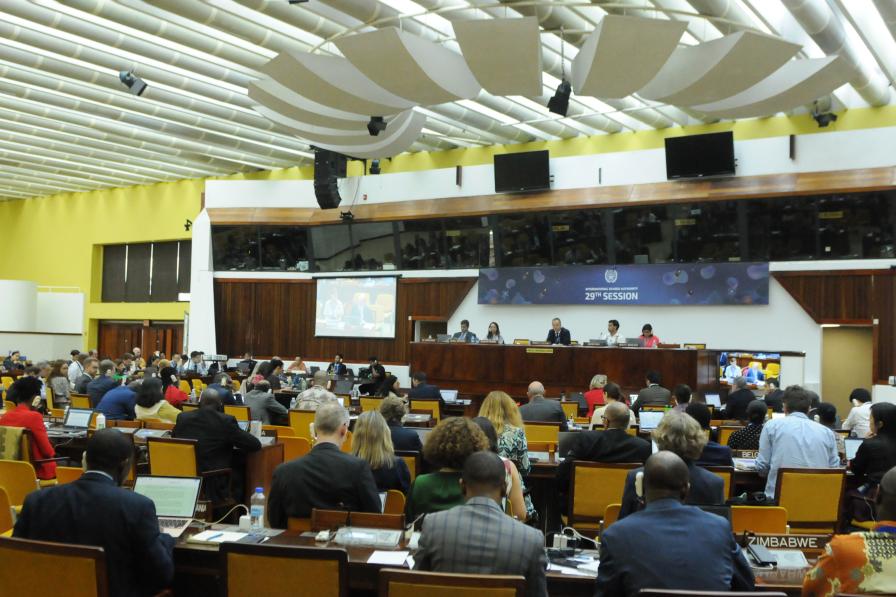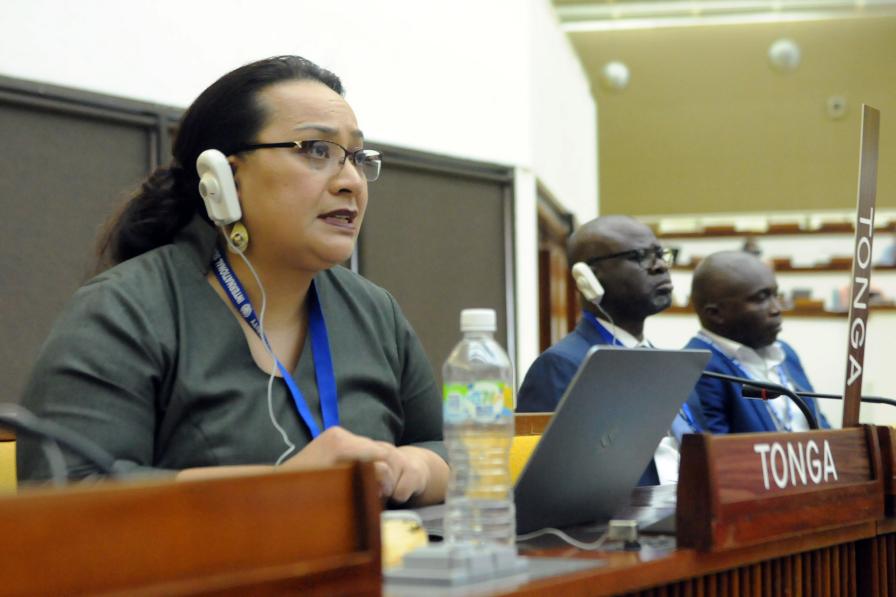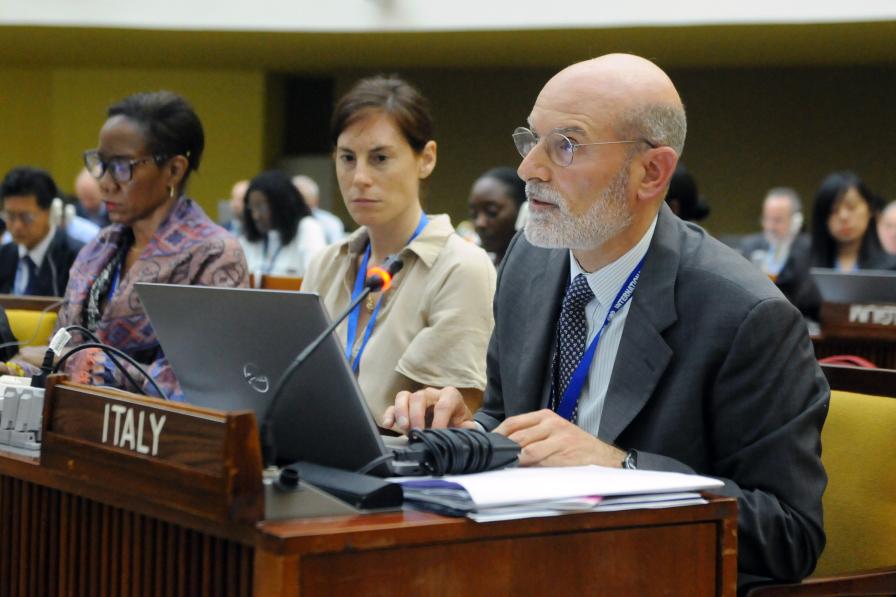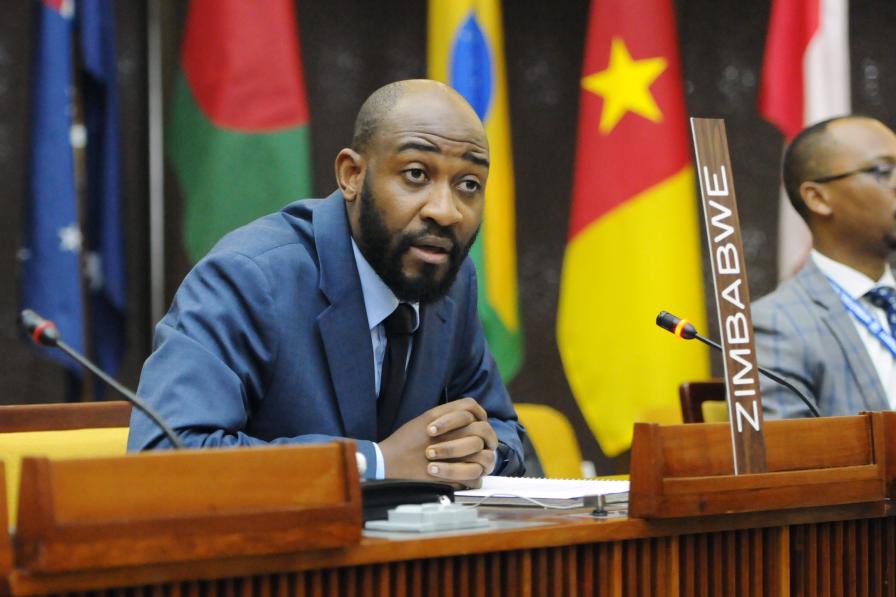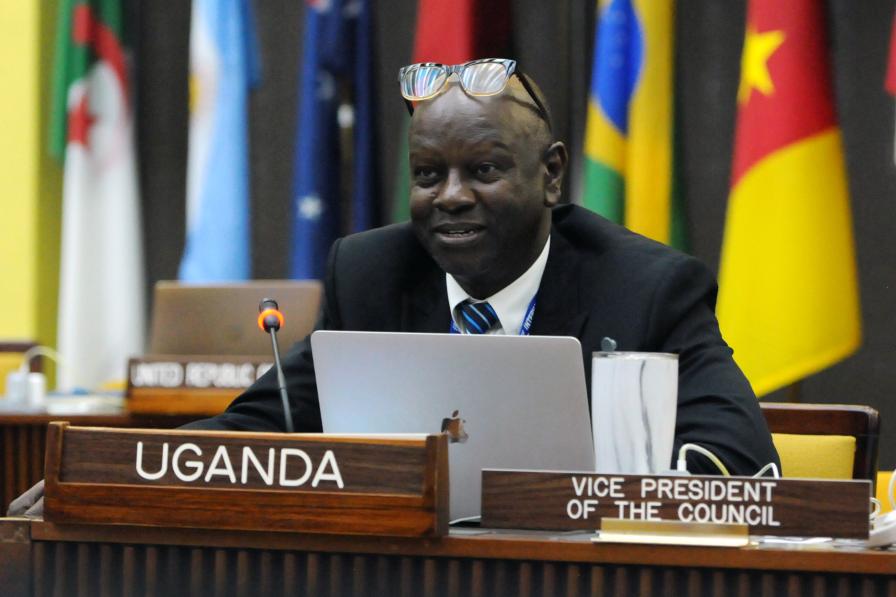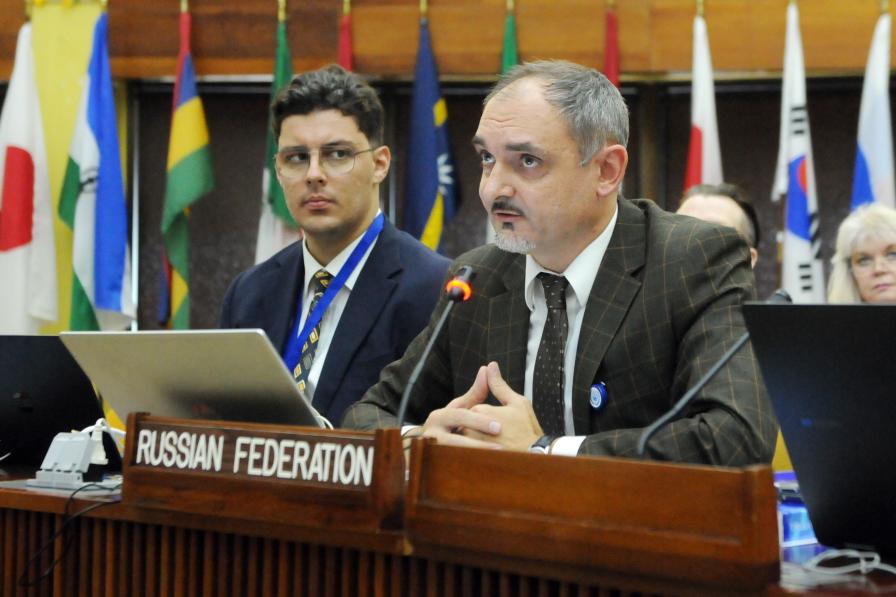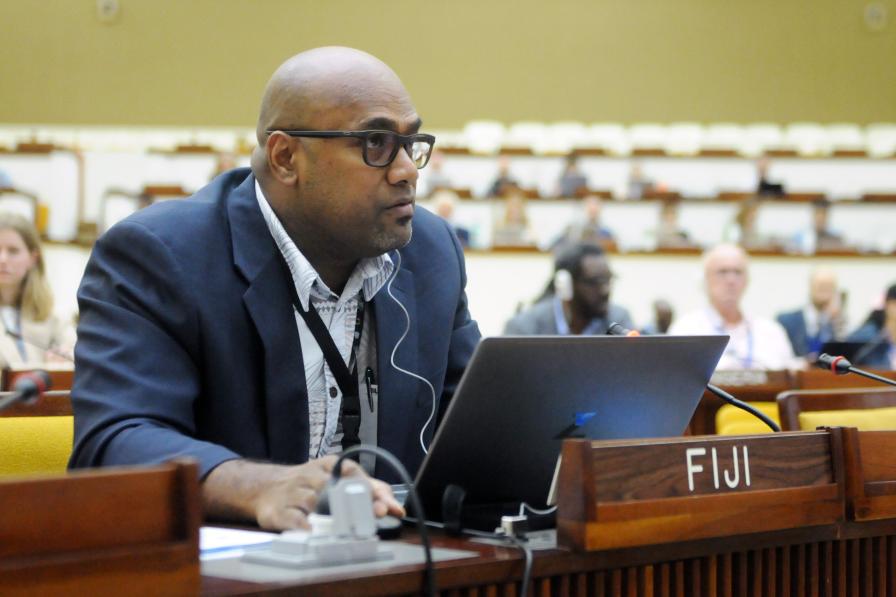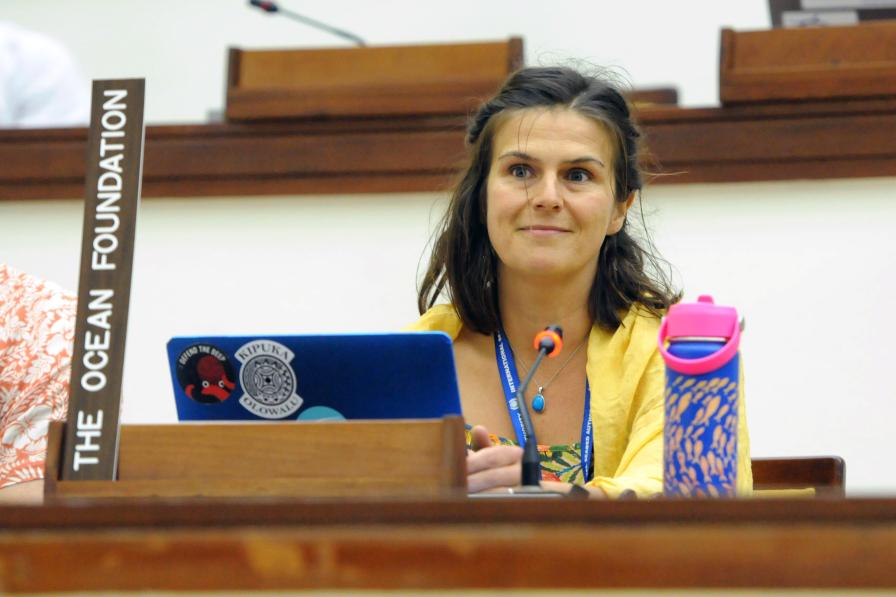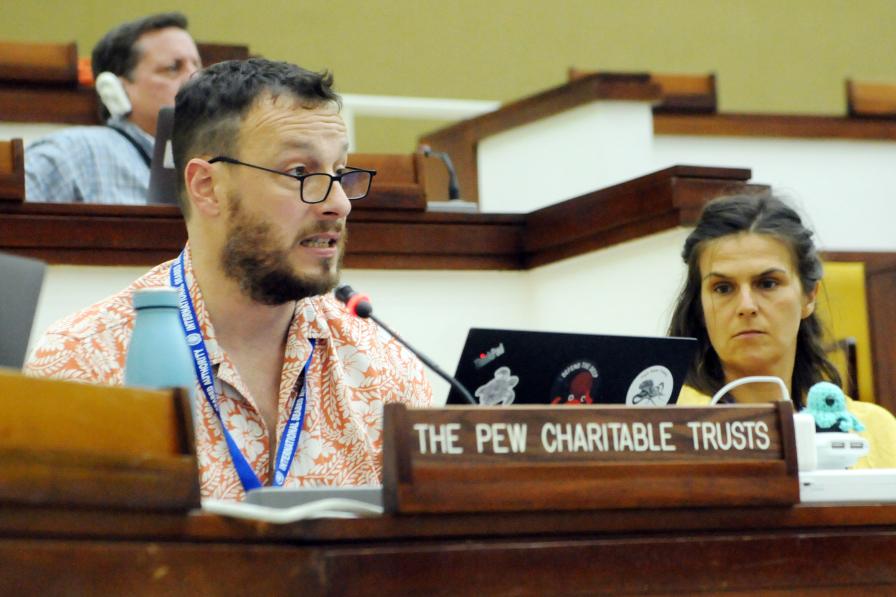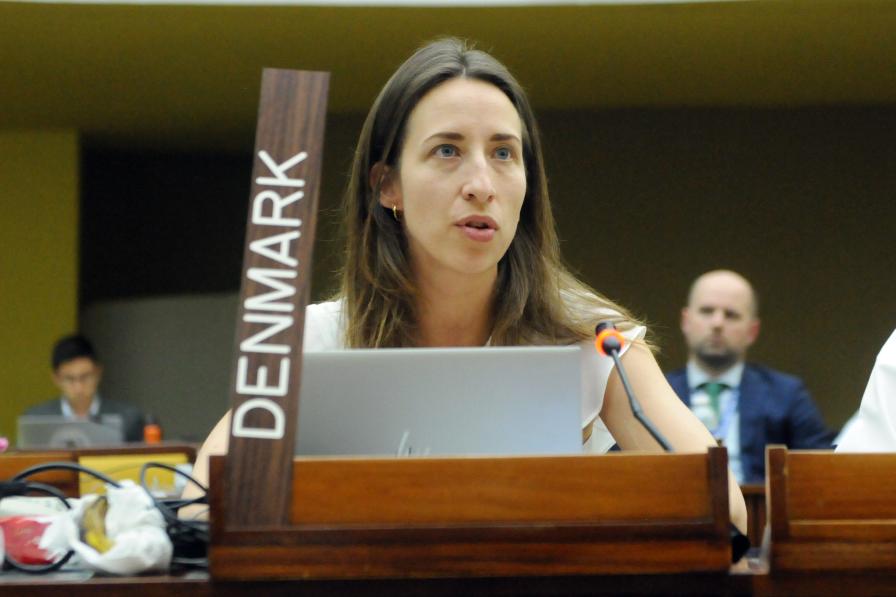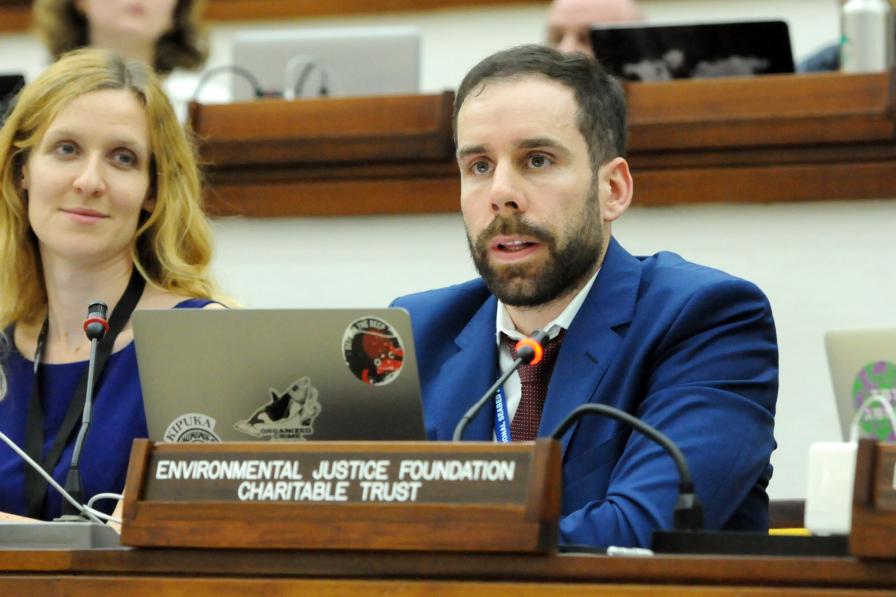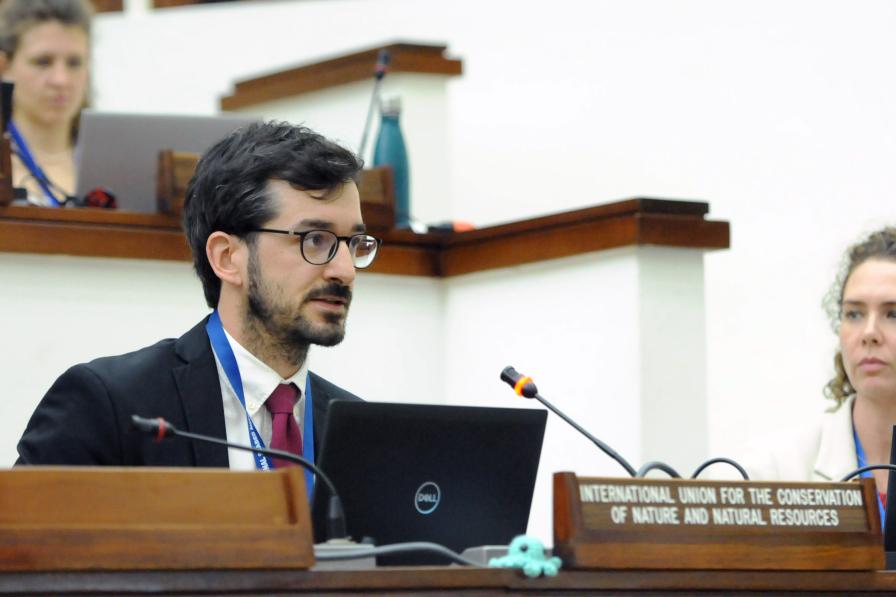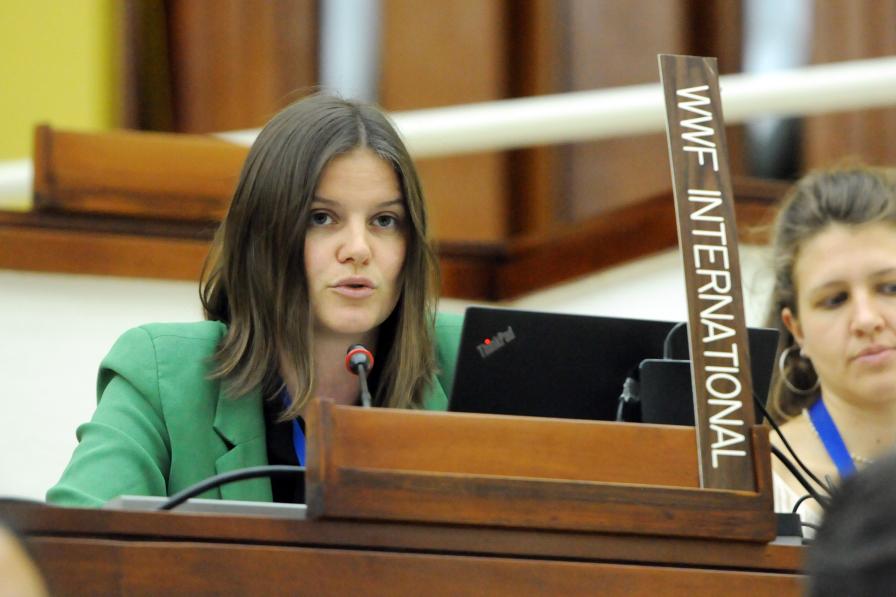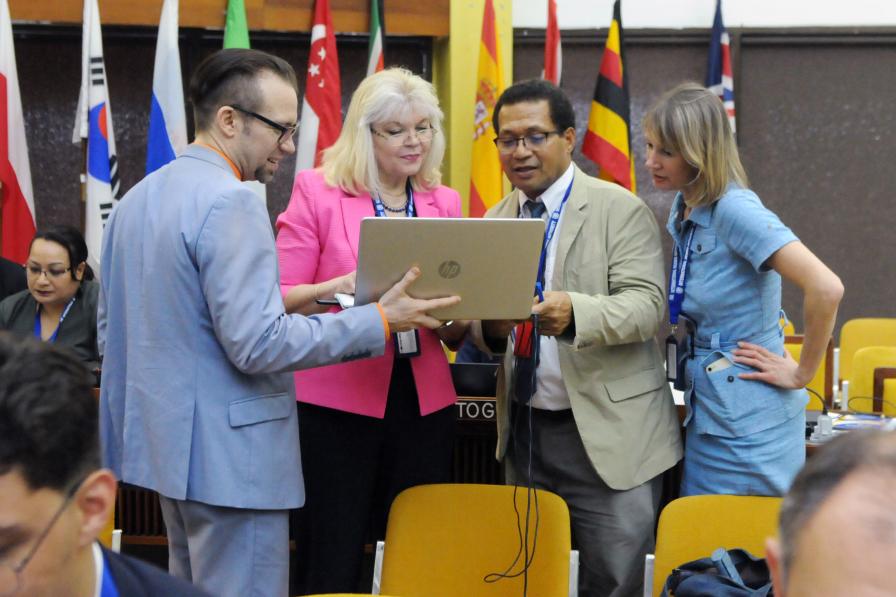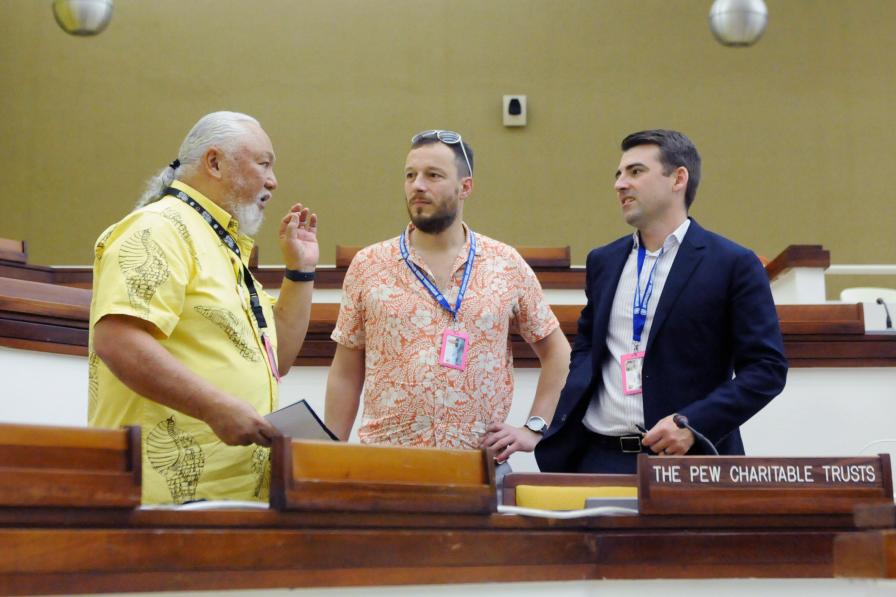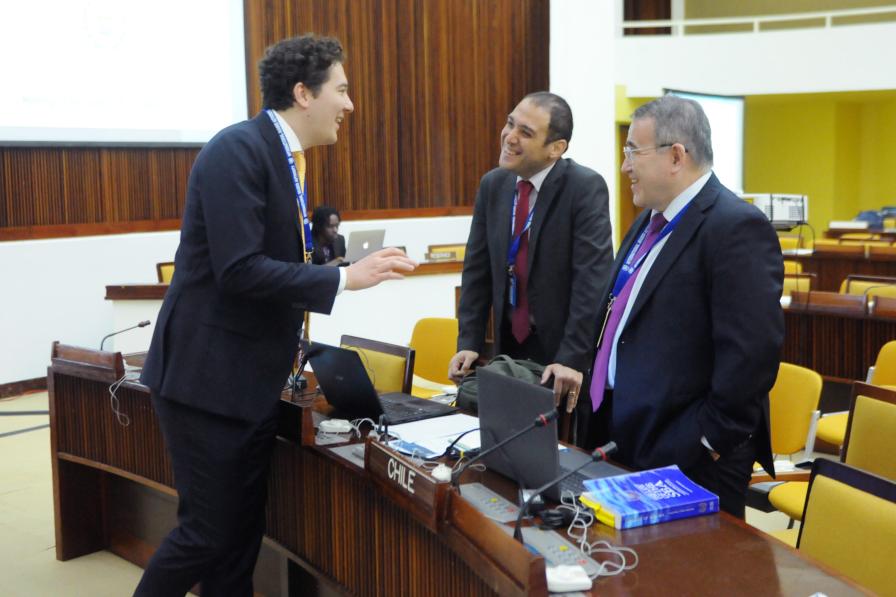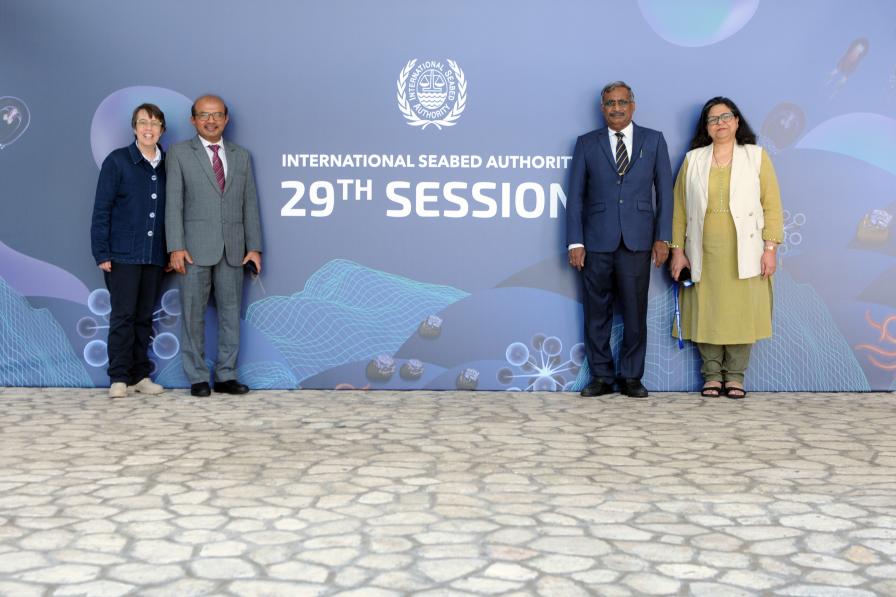Council discussions on Friday took a brief turn from technical, textual negotiations on the draft exploitation regulations on deep-sea mining. Delegates devoted the day to issues of inspection, compliance, and enforcement (ICE), also addressing the right to protest at sea considering a recent incident in a contract area in the Clarion-Clipperton Zone.
In the morning, delegates engaged in a thematic discussion, facilitated by Terje Aalia, Norway, on the ICE mechanism, particularly the establishment of a compliance committee.
Aalia provided background information, focusing on proposals to establish a compliance committee either as an independent subsidiary body under the Council or as part of the Legal and Technical Commission (LTC).
Germany presented a proposal on establishing the compliance committee as a new subsidiary body under the Council, consisting of regional group representatives and LTC members with the Council retaining control.
A delegation outlined the relevant UN Convention on the Law of the Sea (UNCLOS) articles, noting, supported by many, that the Convention provides a suitable mandate for the establishment of any subsidiary organ.
Many delegates supported establishing a transparent, and independent compliance committee as a subsidiary body of the Council, noting it lies at the heart of an effective ICE mechanism. They highlighted the need for follow-up in cases of non-compliance, stressing that otherwise the regulations cannot fulfil their objective. They noted that the LTC may lack the necessary expertise, cautioning against adding to its already heavy workload, and underscored the need to prevent potential conflict of interest.
Some delegates supported establishing a compliance committee under the LTC, noting that such model is aligned with UNCLOS and the 1994 Agreement. They cautioned against establishing a body under the Council, noting that it could overlap and conflict with LTC’s work. They advised against separating similar functions among different organs, also invoking cost-efficiency. They added that choosing its members from the LTC members with relevant expertise, ensuring equitable geographic representation, would suffice.
A delegate suggested developing an analysis of the cost implications for each option. Some cautioned against politicizing the compliance committee. Others pointed to the need for a review of the ICE mechanism to future-proof it, further suggesting taking advantage of remote technologies for inspection purposes.
Delegates further discussed issues around the size of the compliance committee and its composition, including whether Council or LTC members should participate.
In the afternoon, the Council discussed the report of the Secretary-General on the incident in the NORI-D contract area. In November 2023, the Authority received information from Nauru Ocean Resources Inc. (NORI) concerning Greenpeace’s conduct, alleging they interfered with vessel activities. Following exploration Regulation 33 (emergency orders), Secretary-General Michael Lodge issued immediate temporary measures, including maintaining a safety distance from NORI’s vessel of at least 500 meters.
The Netherlands, flag state of the Greenpeace vessel, brought the matter to the competent Amsterdam District Court, which ruled that “Greenpeace may continue its actions around a ship in the South Pacific, but must instruct its activists to immediately abandon the ship on which they are entrenched.”
In the discussion, Nauru, sponsoring state of NORI, noted the right to protest at sea does not grant a license to disregard legitimate sovereign and contractual rights. She underlined the need to ensure actions are taken to prevent future obstruction of activities in the Area and to ensure human life and safety are protected. She suggested the Council adopt a decision establishing a safety zone of up to 500 meters around vessels and installations conducting activities in the Area.
The Netherlands outlined in detail the decision of the Amsterdam District Court and the findings of the investigation carried out by the Ministry of Infrastructure and Water Management.
Many delegates stressed both the right of peaceful protest at sea and the contractors’ legitimate contractual exploration rights need to be protected. However, they expressed divergent opinions on how to address the issue.
Some members supported taking regulatory measures aimed at preventing interference with contractors’ activities, including establishing the safety zone that Nauru suggested.
Others underscored that the court’s verdict highlighted that some level of nuisance through civilian protest must be tolerated, suggesting the Council take no further action. They cautioned against establishing safety zones around vessels, stressing the Council has no authority or jurisdiction to establish such zones, which fall under the remit of the International Maritime Organization, and are not provided for under UNCLOS.
Delegates further disagreed on the interim measures taken by the Secretary-General. Some emphasized they were necessary to protect legitimate contractors’ rights. Others stressed that Regulation 33, upon which the Secretary-General acted, is not applicable in this case since there was no risk of serious harm to the marine environment.
Greenpeace, supported by many observers, defended the recognized right of protest at sea, rejecting allegations that their protest was unsafe and non-peaceful, pointing towards the relevant court decision, and stressed that safety zones around vessels cannot be established to prevent protests.
Following a lengthy discussion, the Council took note of the report of the Secretary-General on the incident.
Closing the first week of the meeting, most delegates agreed that despite progress in the development of a common understanding on the draft exploitation regulations, several issues, including environmental externalities and their incorporation in the financial model as well as provisions on compliance and the rights of coastal states, require further deliberations.
To receive free coverage of global environmental events delivered to your inbox, subscribe to the ENB Update newsletter.
All ENB photos are free to use with attribution. For the 1st Part of the 29th Annual Session of the ISA, please use: Photo by IISD/ENB | Diego Noguera
